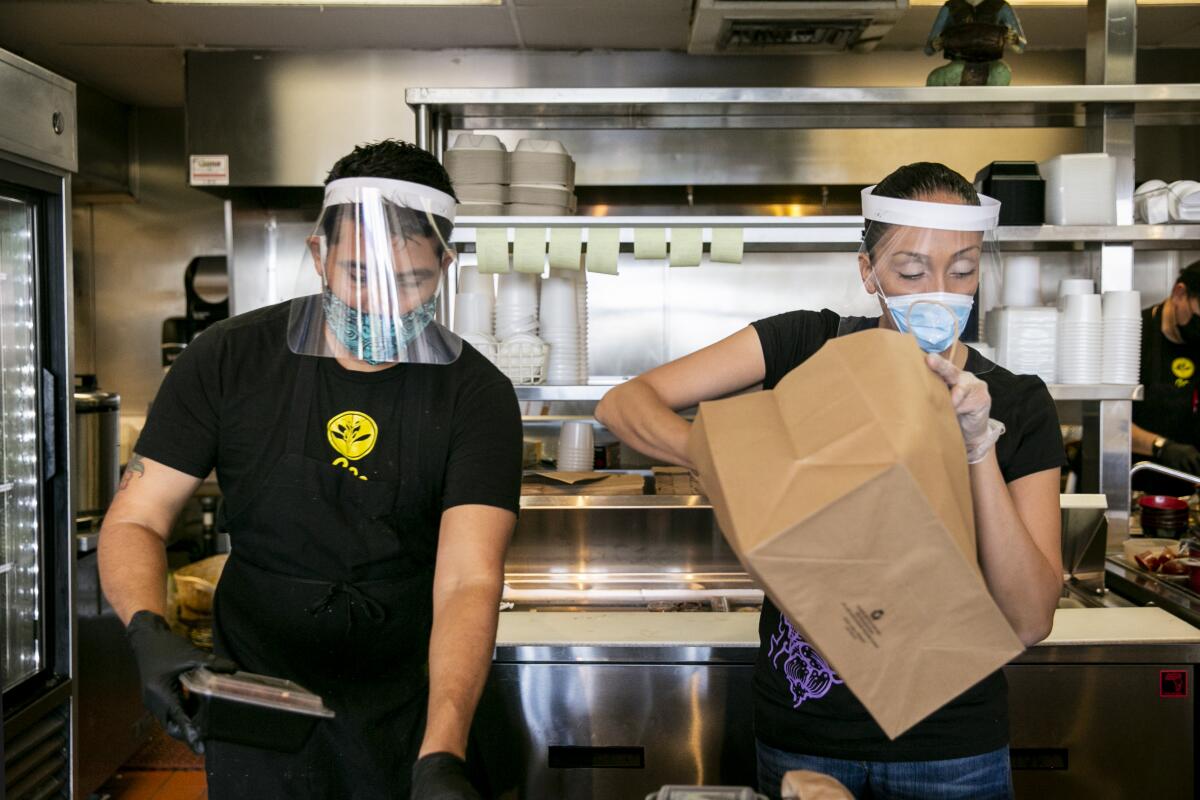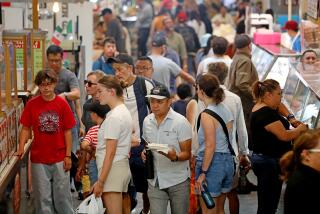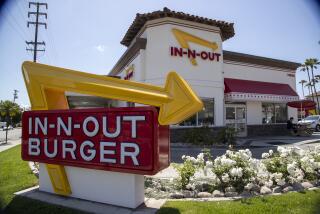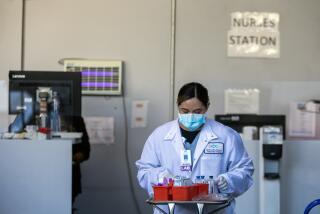Opinion: Why lifting the mask mandate will make life harder for retail and restaurant workers

Though it may have seemed that Americans couldn’t wait to be allowed to take off their masks, President Biden’s call for those who have gotten the COVID-19 vaccine to drop their face coverings and “greet others with a smile” has left many people frustrated. Essential workers who have struggled for months to convince the people they come in contact with to wear masks are left wondering what to do after the Centers for Disease Control and Prevention’s announcement that people who are fully vaccinated can stop covering their faces in most indoor and outdoor settings.
Workers at restaurants, pharmacies, supermarkets and other stores will not be as protected as they have been if hundreds of the customers they interact with daily stop wearing masks. So far, authorities haven’t clarified how businesses can determine if their customers without face coverings are vaccinated or are just pretending to be. “CDC guidance fails to consider how it will impact essential workers who face frequent exposure to individuals who are not vaccinated and refuse to wear masks,” said United Food and Commercial Workers International Union President Marc Perrone.
It is important to understand that, for many states, the CDC’s update doesn’t change anything. More than 20 states still have mask mandates, and residents need to wait until local governments decide to follow the federal guidelines. In California, where restrictions on business and activity are scheduled to remain in place until June 15, it is still necessary to cover your face in public settings, especially indoors.
Whether the new White House position prompts Gov. Gavin Newsom to move earlier on masks remains to be seen. “With the [California Department of Public Health], we are reviewing the new CDC guidance on masking,” the governor’s office tweeted without providing more details.
Many people evidently believe, however, that Biden’s announcement gives them the freedom to ditch masks immediately. They’ve already started to cause problems for restaurants. Sharokina Shams, a spokesperson for the California Restaurant Assn., said that restaurants in multiple parts of California had reported confrontations with customers who insisted that they did not need to wear masks anymore. Workers had to remind guests that they still needed to cover their faces on the way in and out.
Some servers I spoke to are concerned that more people will soon go maskless, especially when restaurants allow more customers to dine indoors than previously permitted. Others said that lifting mask guidance wouldn’t make a difference because customers already spent most of their time in restaurants maskless (while eating and drinking). Even before the CDC changed its guidance, waiters put themselves at higher risk than, for example, retail workers, whose customers hadn’t been allowed to take their masks off in stores.
Retail employees will have to get used to radical changes as shoppers start flowing in without masks. Though industry associations said that the safety of their workers was their priority and urged customers to wear masks, many companies are taking another path outside of California. Major U.S. retailers such as Walmart, Costco, Trader Joe’s, Sam’s Club and Publix announced they would no longer require face coverings for fully vaccinated customers, state rules permitting. Some of them lifted masking rules for inoculated employees as well. California Grocers Assn. President Ron Fong, whose group represents chains such as Costco, Whole Foods, Raley’s, Albertsons and Safeway, said his members were waiting for the state government to adopt CDC guidelines.
The CDC, local governments and employers are putting workers, who have played an essential role in keeping the country going during the pandemic, in a difficult situation. Many retail and restaurant employees are young people living with older relatives, who are more at risk of severe cases of COVID-19 if they haven’t been or are unable to be vaccinated. Now there will be fewer barriers to transmitting the virus. U.S. food service and retail industries are struggling with a severe labor shortage now, and increasing the risk of infection can only make it harder to fill those jobs. So why wouldn’t we continue to take care of essential workers who have risked their lives during the pandemic and keep wearing masks indoors?
More to Read
A cure for the common opinion
Get thought-provoking perspectives with our weekly newsletter.
You may occasionally receive promotional content from the Los Angeles Times.










